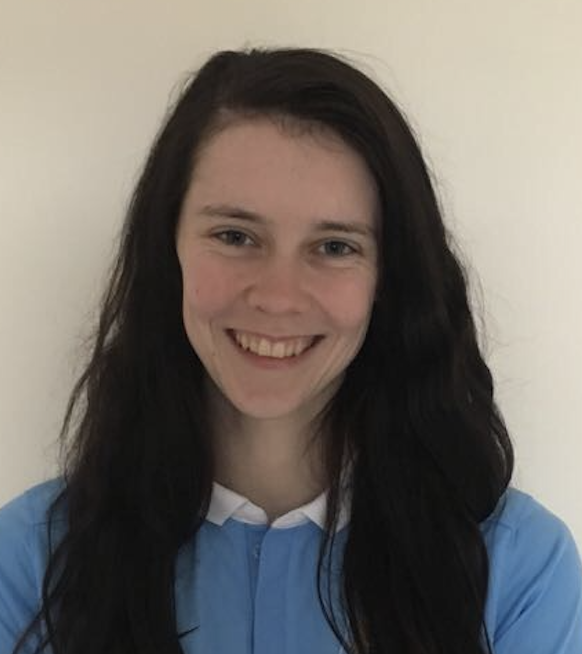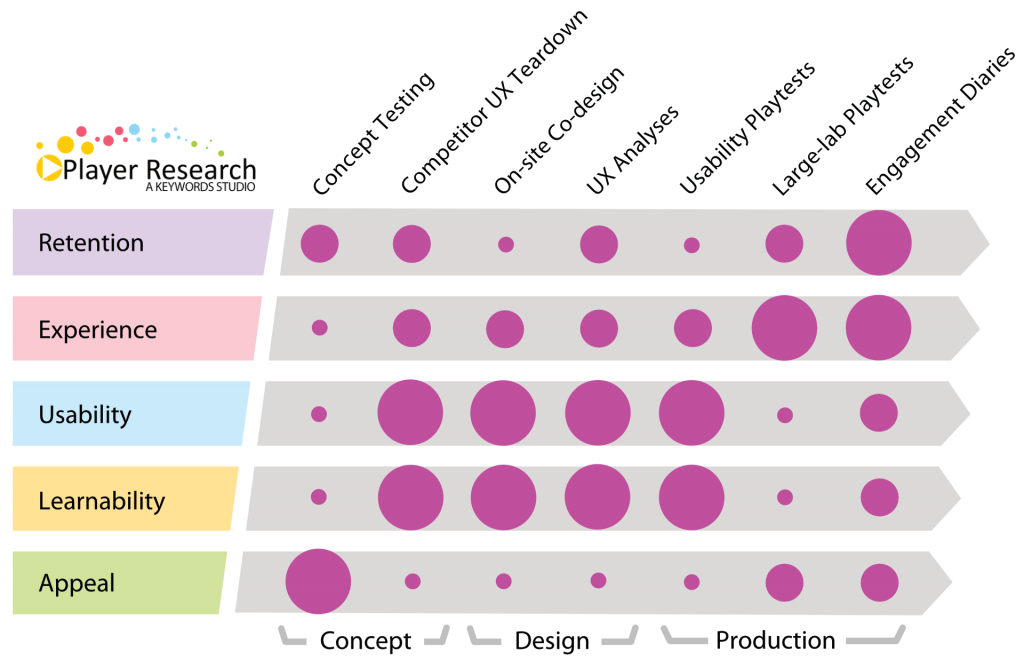Chloe Snell

- Role: Games User Researcher
- Company: Player Research
- Location: Brighton, UK
Excellent advice from user researcher Chloe Snell!
QRM: Can you tell us a little bit about who you are and what you do in the games industry?
Chloe: I'm a games user researcher at Player Research. I come from an academic background in Psychology and also studied Gender and Media as a post-grad. I always tailored my studies towards games however I could as they were always so important to me, and when I found out that user research in games was an actual career it was all I set my mind to achieve! I joined Player Research just over a year ago now, where we carry out user research on games of all genres and platforms to try and improve the player experience while helping dev teams realise and deliver their design intent.
QRM: What about the games industry excites and inspires you?
Chloe: I think that as a media form, games are so unbelievably exciting in terms of the experiences they can provide to people that other media just can't deliver in the same way. Being a part of the games industry means being a part of that special creative machine, and it's amazing to think of all of the stories and experiences we can provide and make meaningful change from. In terms of the games user research industry specifically, I am inspired constantly by my colleagues and their amazing minds and their passion; it's just great to be around other people who care as much as you do about something. Our industry offers up some very unique and exciting challenges, and working to solve those challenges the best we can and design research to fit the interesting questions given to us by developers is always interesting.
QRM: What about the games industry frustrates or disappoints you? What are the challenges you’re currently facing in the industry?
Chloe: How far behind we are in terms of the culture and representation in games and the games industry. The on-going hostility towards women, non-binary people, and people of colour is endlessly exhausting and frustrating. Also, the lack of diversity seen across games studios; this is something I've personally been focusing on trying to improve within our own company through implementing better hiring practices and developing ways to maintain an inclusive culture as our company grows and expands. It's not good enough for people to blame the pipelines, there are very talented people out there from marginalised groups and it's a matter of trying hard to welcome them in and say 'you belong here' which isn't a message that is currently being conveyed across the industry, and that needs to change.

QRM: If you could make one roadblock magically disappear from the games industry, what would you choose and why?
Chloe: Probably Toxic Gamer culture. If we could eliminate this idea that games belong to a certain group of people, the division between hardcore and casual Gamers, the shocking levels of fan entitlement, and Gamers crying about 'SJW's anytime a game features a protagonist of colour - all that kind of stuff is what I wish could just disappear. It's this kind of entitlement and gatekeeping that can ultimately create hostility and violence towards marginalised people. I wish we could have a world where women didn't have to avoid voice chat for fear of harassment on online games, or where queer relationships could be centred without Gamers complaining about games pushing a political agenda. I think it would mean games could be for everyone without people feeling like they don't belong, and in turn could lead to all people feeling like working in games could be a career for them.
QRM: What message would you give to allies—both individuals and companies—who want to know how to support marginalised people better?
Chloe: Actively listen, then elevate the voices of marginalised people, and if you have power or privilege make sure you act on what marginalised people are telling you. If marginalised people are telling you that xyz is offensive or hurtful, then please listen to them and try to understand rather than jumping to the defence of games or developers you love. Ensure you are taking responsibility to actively educate yourself about the issues that marginalised people are facing in the industry, and in general, and think about actionable steps you can take to make things better. Support marginalised devs and buy & play games with great representation - shout about games that you love with great representation so that other people will want to play them too.
QRM: What message would you give to marginalised people who are working in games or would like to work in games?
Chloe: There is absolutely space for you in games and we want and need you here! Make sure you always be yourself, unapologetically, and never compromise who you are and how you feel for the sake of others. Working in games is amazing and important, but it's not more important than your personal happiness and well-being so if something in games is affecting that then it's not worth neglecting yourself for it.
QRM: If people want to find and support you and your work, how can they do that?
Chloe: Through Player Research's t=Twitter, which also has links to our website. You can support the important work we do by learning about games user research and why it is so vital to game dev, and we always need people to be spreading the word about games user research and the value it brings to games! My personal twitter is at: @theoneinthe5un.

